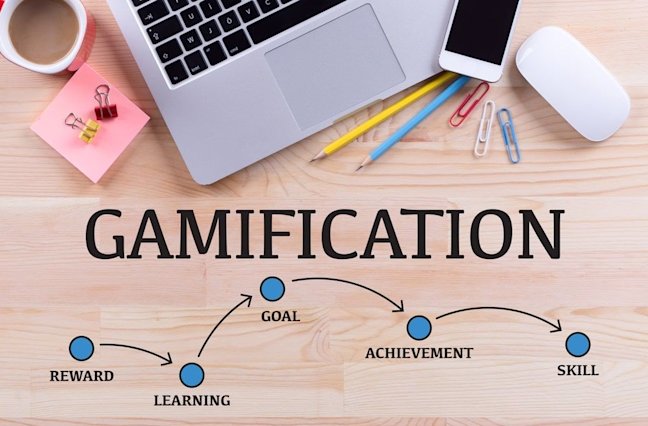Top 10 gamification blogs
Contact centers need well-defined business goals that are easily tracked with captured speech analytics data. To learn more about gamification, read o...
Solutions
Products
Ingest omnichannel customer interactions, from audio and screens to surveys, for complete visibility and analytics.
AI virtual agents, real-time multilingual translation, and event-based customer feedback drive smarter, personalized CX initiatives.
Customers
Solutions
Products
Customers
Resources
Company
The Team at CallMiner
November 14, 2019

In our recent webinar we talked about How to Gamify Your Contact Centre and Motivate Advisors, But before you get into the depths of planning your gamification strategy, there are three deadly sins every contact centre needs to avoid.
Why is this so important? A study we produced showed that the top reasons for agent demotivation were: inaccurate and unfair evaluations, limited opportunity for self-development and, no or misaligned incentives.
Add to that the complexity of a large generational span of employees from baby boomers to Gen Z – each with different expectations and personal motivators. Throw in the need to align personal behaviour with your organisational goals, and you can see that it’s essential to have 100% visibility on each advisor’s performance before you even start to think about gamification. After all, if you’re trying to gamify personal performance, then you need a personalised approach to gamification to have any chance of delivering the right outcomes.
So let’s look at the ways to avoid these sins.
Most organisations only analyse a small proportion of interactions – typically less than 1%. As we’ve identified above, making decisions about agent performance based on listening to random calls, or reviewing random interactions, is one of the top demotivators for agents. Without analysing every single interaction, it’s impossible to provide agents with meaningful and fair feedback on their performance.
Not only will listening to random call samples frustrate employees but without evaluating all agent interactions it’s impossible to create a complete picture of the customer journey and identify trends, problems and opportunities within the call centre that could impact customer satisfaction. It’s also impossible to identify accurately coaching and training needs. This leads to a waste of time and effort by supervisors and trainers. It will also mean that the organisation will fail to achieve essential performance improvements. Without this essential insight, you could be choosing entirely the wrong behaviour to gamify.
Speech analytics, that automatically analyses 100% of interactions, gives agents the information they need to improve their customer-handling skills and behaviour. For example, by combining call recording data with acoustic data, it is possible to measure key emotional content, such as showing empathy. It is also possible to identify trends in the data, such as key words and phrases that deliver more successful call outcomes. Armed with this analysis you can identify the behaviours you need to change or reinforce to achieve your business goals – and then assign sensible metrics to measure improvement.
If you provide each agent with a daily, personalised scorecard that identifies their performance against these key metrics and behaviours, it makes it easier for them to be in control of their own improvement. It makes it possible for them to set very specific improvement goals for each shift and to ask for coaching assistance where they need it the most. This personalised analysis enables agents to be at the top of their game, as it gives them a constant and transparent view of how effective they are at exceeding customer expectations. Contact centres can use that insight to create a culture of self-evaluation and improvement that is supported by targeted, personalised coaching. It’s at this point that it makes sense to add gamification into the process.
Intelligent gamification encourages and recognises behaviour changes that achieve organisational goals, aligns with your reward and recognition strategy and drives personal and operational performance improvements. We call it “intelligent” because it is based on all the information you need to make intelligent decisions. But, with the addition of artificial intelligence, you can also begin to predict how changes to your gamification strategy will deliver a better return – now that’s really intelligent.
CallMiner’s Eureka platform enables your organisation to provide agents with a daily score for his or her own performance against the metrics you have set. This personalised insight drives personal behaviour improvements. Eureka also provides the option to show each agent how they rank against their teammates – for each of those metrics. For example, an agent will see if they are #1 of 28 agents for showing empathy but #12 of 28 for upselling. This adds a competitive element to the drive for personal improvement. By keeping the rankings anonymous you can create competition that doesn’t become personal and destructive.

If you follow these steps, your gamification strategy will deliver an amazing return on investment. For example, by using gamification to encourage carefully targeted service improvements, one of our customers achieved the following valuable outcomes:
For more information on agent motivators and customer case studies listen to the webinar recording “How to Gamify Your Contact Centre and Motivate Advisors.”

CallMiner is the global leader in AI-powered conversation intelligence and customer experience (CX) automation. Our platform captures and analyzes 100% of omnichannel customer interactions delivering the insights organizations need to improve CX, enhance agent performance, and drive automation at scale. By combining advanced AI, industry-leading analytics, and real-time conversation intelligence, we empower organizations to uncover customer needs, optimize processes, and automate workflows and interactions. The result: higher customer satisfaction, reduced operational costs, and faster, data-driven decisions. Trusted by leading brands in technology, media & telecom, retail, manufacturing, financial services, healthcare, and travel & hospitality, we help organizations transform customer insights into action.